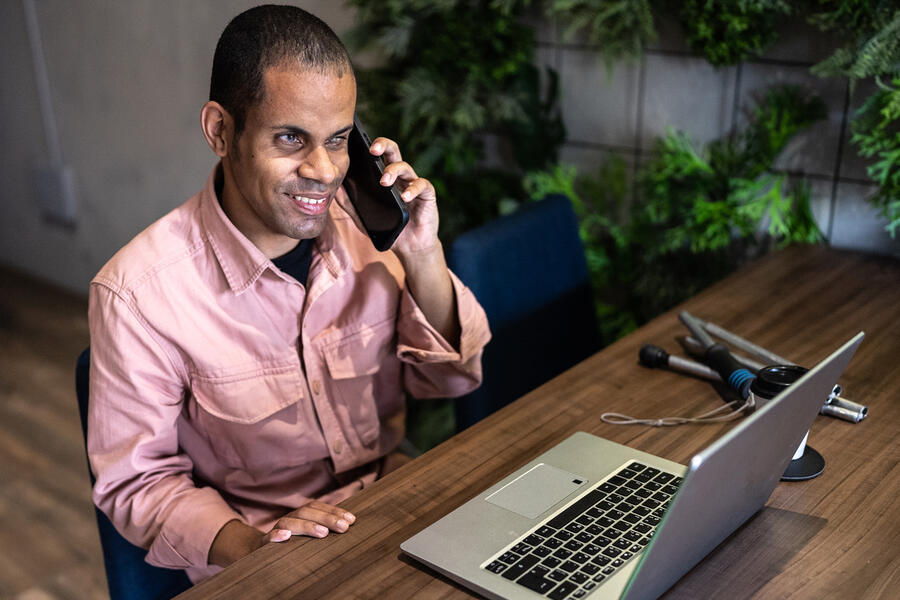As artificial intelligence becomes increasingly embedded in the fabric of higher education, so do the questions surrounding its role in supporting, or hindering, digital accessibility. To help unpack these complexities, Johns Hopkins University is hosting a trio of digital accessibility events offering faculty, staff, and students timely opportunities to strengthen inclusive practices in an increasingly digital academic landscape.
The series begins Friday, April 11, with From Promise to Practice: AI's Role in Higher Ed Accessibility, a webinar led by Claire Brady, president of Glass Half Full Consulting. The session will explore how institutions can use AI tools to support, rather than complicate, accessibility efforts in learning environments.
"AI tools hold enormous potential, but we have to ensure they're being developed and deployed with a commitment to accessibility," Brady says. "This session is about digging deeper, beyond compliance, to address the real-world barriers and biases that may surface as these technologies become more prevalent."
On Thursday, April 24, Hopkins web administrators can attend Digital Accessibility Open Office Hours, featuring Meg Lee from Siteimprove. The session offers practical guidance for using the platform's automated scans to identify and address accessibility issues on JHU websites.
Rounding out the month is the Ivy+ Global Accessibility Awareness Day Virtual Event on Wednesday, April 30, co-hosted with peer institutions. The event features lightning talks and presentations on designing accessible content, using AI responsibly, and creating inclusive digital experiences across campuses.
Kathy Cahill, the university's digital accessibility coordinator, emphasizes the timeliness of these events. "These moments are important opportunities for our community to reflect on how we evaluate emerging technologies not just for functionality but for fairness," Cahill says. "Ensuring accessibility in AI isn't just a technical issue; it's a matter of inclusive design and institutional responsibility."
Register for the events here:
- AI's Role in Higher Ed Accessibility
- Accessibility Open Office Hours
- Ivy+ GAAD 2025 Accessibility Event
Posted in News+Info








